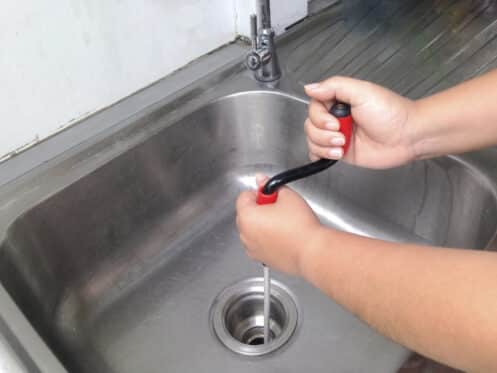The Basics of Bathroom Plumbing: Essential Advice for New Homeowners
The Basics of Bathroom Plumbing: Essential Advice for New Homeowners
Blog Article
This post in the next paragraphs on the subject of 6 Essential Plumbing Checks for New Homeowners is fairly fascinating. Don't miss it.

For brand-new homeowners, understanding and preserving shower room plumbing can conserve both money and time by stopping pricey problems down the line. Below are some essential shower room pipes suggestions to aid you maintain whatever running smoothly.
Acquaint Yourself with the Key Shut-Off Shutoff
Recognizing where the main water shut-off valve lies in your home is vital. This permits you to quickly turn off the water supply in case of significant leaks or throughout plumbing emergencies, protecting against substantial water damage.
Routinely Evaluate for Leaks
Tiny leakages can bring about big problems. Regularly inspect under sinks, around toilets, and near plumbing fixtures for any indications of leaks. Look for dampness, small drips, or corrosion. Catching and repairing leaks early can stop extra serious damage and save water.
Do Not Disregard Slow Drains Pipes
If your sink or tub is draining pipes slowly, it's typically an indicator of an obstruction forming. Addressing this very early can avoid a total obstruction. Utilize a plunger or a plumbing professional's serpent to remove particles. Stay clear of utilizing chemical drain cleaners as they can harm your pipes with time.
Know What Not to Flush
Bathrooms are not garbage disposals. Avoid purging anything aside from toilet paper and human waste. Products like wipes, womanly health items, and cotton bud must be disposed of in the trash to prevent clogs and sewer backups.
Mount Strainers in Drains
Area strainers in your sink and tub drains to catch hair and various other particles before they enter your pipes system. Cleaning up the filters consistently will assist prevent accumulation and maintain water flowing easily.
Keep Your Water Heater
Guarantee your water heater is set to an appropriate temperature (usually around 120 degrees Fahrenheit) to avoid hot and minimize power use. Flush the container each year to get rid of debris accumulation, which can lower the performance and life expectancy of your heating system.
Upgrade Your Components
If your home has older fixtures, consider updating to a lot more effective models. Modern bathrooms, showerheads, and taps are designed to utilize less water while providing good pressure, which can substantially minimize your water costs and ecological footprint.
Beware with DIY Plumbing Repairs
While it's tempting to handle all home repairs by yourself, be cautious with plumbing. Some concerns might call for professional expertise, especially if they include major water lines or sewage system repairs. Working with a professional can often be much more cost-efficient than do it yourself, specifically if it stops further damages.
Prepare for Cold Weather
Shield your pipelines from cold throughout winter by protecting pipes in unheated areas like cellars, attic rooms, and garages. Throughout extreme chilly, allow cold water drip from taps served by subjected pipelines to help avoid freezing.
Arrange Regular Upkeep
Think about scheduling yearly evaluations with an accredited plumber. They can identify problems that you could miss out on, such as covert leakages or deterioration on pipelines and components. Routine upkeep assists prolong the life of your pipes system and can stop emergencies.
Verdict
Understanding and preserving your home's shower room pipes can protect against many typical issues. By complying with these necessary suggestions, you can guarantee your shower room continues to be functional and effective, saving you money and time in the future.
Essential Plumbing Tips for Homeowners: Keep Your Pipes Flowing Smoothly
As a homeowner, understanding the basics of your plumbing system can save you time, money, and a lot of headaches. Plumbing issues can range from minor annoyances like dripping faucets to major problems like burst pipes that cause significant damage. This guide provides essential tips to help you maintain your plumbing system and tackle common issues.
Understanding Your Plumbing System
Supply System: Brings fresh water into your home from a municipal source or a well. Drain-Waste-Vent System: Removes wastewater and vents sewer gases outside. Fixtures and Appliances: Includes sinks, toilets, showers, dishwashers, and washing machines. Basic Maintenance Tips
Regular Inspections: Periodically check for leaks, corrosion, and other signs of wear and tear. Look under sinks, around toilets, and near water heaters. Know Your Main Shut-Off Valve: In case of a major leak, you’ll need to shut off the water quickly. Ensure everyone in your household knows where the main shut-off valve is located. Prevent Frozen Pipes: In cold climates, insulate exposed pipes and let faucets drip during extreme cold to prevent freezing. Use Strainers: Install strainers in sinks and tubs to catch hair, food particles, and other debris that can cause clogs. Common Plumbing Issues and Solutions
Clogged Drains:
Prevention: Avoid pouring grease down the drain and use drain screens to catch debris. DIY Fix: Use a plunger or a plumbing snake to clear minor clogs. For stubborn clogs, a mixture of baking soda and vinegar can sometimes help. Leaky Faucets:
Prevention: Replace washers and seals regularly. DIY Fix: Turn off the water supply, disassemble the faucet, and replace worn parts.

Click Here Report this page